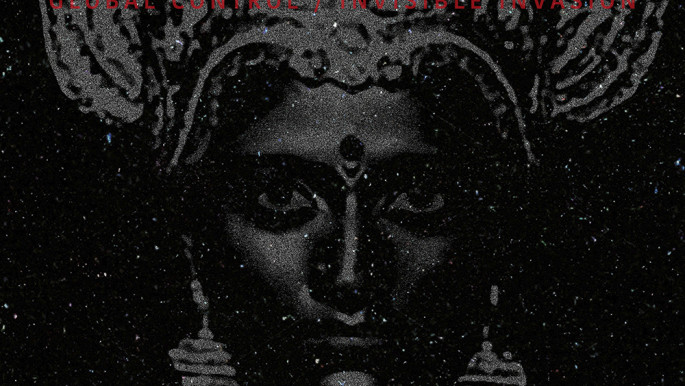Ammar 808: Tunisia's sonic mastermind returns with fusion electronica
His latest project Global Control / Invisible Invasion is a heavily southern India-inspired project, which is a nod to his travels there.
Ammar 808's previous album 'Maghreb United' released in 2018 received widespread critical acclaim and shook dance floors throughout Europe, North Africa and beyond. This time, the Brussels-based Tunisian electronic producer travelled to the Tamil Nadu region of southern India for a breathtaking new adventure.
"When I was 20 I went to Delhi and studied for months," Ammar 808 explains. "I learned sitar and tabla and did a lot of recording, and I began to absorb the culture, to learn. Hinduism has a pantheon of gods, and it shows a different culture of freedom," he added.
"After 2011 and the start of the Arab Spring in Tunisia, my homeland, I've been wondering more and more about freedom and my own identity."
 |
|
| Ammar 808's previous album 'Maghreb United' received critical acclaim |
One notable feature of his live sets is the sound dynamic, and just how loud it gets. "Yes, sometimes it gets very loud depending on the venue/audience," he says.
"But usually, we try with my sound engineer to get to high dynamics by adding distortion to the master output. It gives an impression of loudness without blowing up the speakers while staying below the sound loudness level in festivals. It's a handy trick."
Global Control / Invisible Invasion has a dominant Indian flavour to it and is very different from previous Ammar 808 records. So why did he make this choice? And why did he make the trip to southern India?
"The decision from the start of the project, I intended to travel to different places, with each album a new adventure, my starting point was my roots, the Maghreb," he says.
"India has been an old love story as I started learning Indian music around 20 years ago and kept researching and listening to the music and culture for a couple of decades," he adds.
"Last year it was about time to do it. I am currently studying other cultures and music. Who knows? Maybe there's a new album on the way." Ammar 808 said he was attracted to Carnatic music and south Indian culture after listening to some recordings of the violin player L. Shankar and the great diva M.S. Subbulakshmi.
 |
I intended to travel to different places, with each album a new adventure, my starting point was my roots, the Maghreb |  |
"Instantly I was mesmerised by the complexity of the music, and I wanted to know more about it. As a musician, time can be an excellent experimentation field. In practice, Indian music is a lot about the arrival point. You start a melody with those harmonies in complex architectural shapes that land on a precise and projected moment in the time cycle."
 |
|
| Click to enlarge |
Besides all things India, what other things rock Sofyann's boat with regards to music and arts?
"Most of my inspirations are non-musical. With India from the start, I was very much interested in the epics and stories that are most of the time so spectacular and insightful. Philosophy and mysticism are also a great source of inspiration. I had a lot of musical inspiration in my 20s but now less and less, translating ideas and concepts from other planes of knowledge to music is much more fun."
What's next for Ammar 808 now that he's preparing for promo and that Covid-19 is still prevalent – meaning no live shows for the foreseeable future?
"Now that the album is done, live touring - I am putting together the live show right now. Touring starts again in September if the global situation continues toward stability."
Yousif Nur is a journalist who writes freelance for various publications including the Guardian, Dazed and Confused and Notion Magazine. He writes mostly about music
Follow him on Twitter: @yousifnur
Read more from The New Arab Meets special section below:
 |
|





 Follow the Middle East's top stories in English at The New Arab on Google News
Follow the Middle East's top stories in English at The New Arab on Google News


